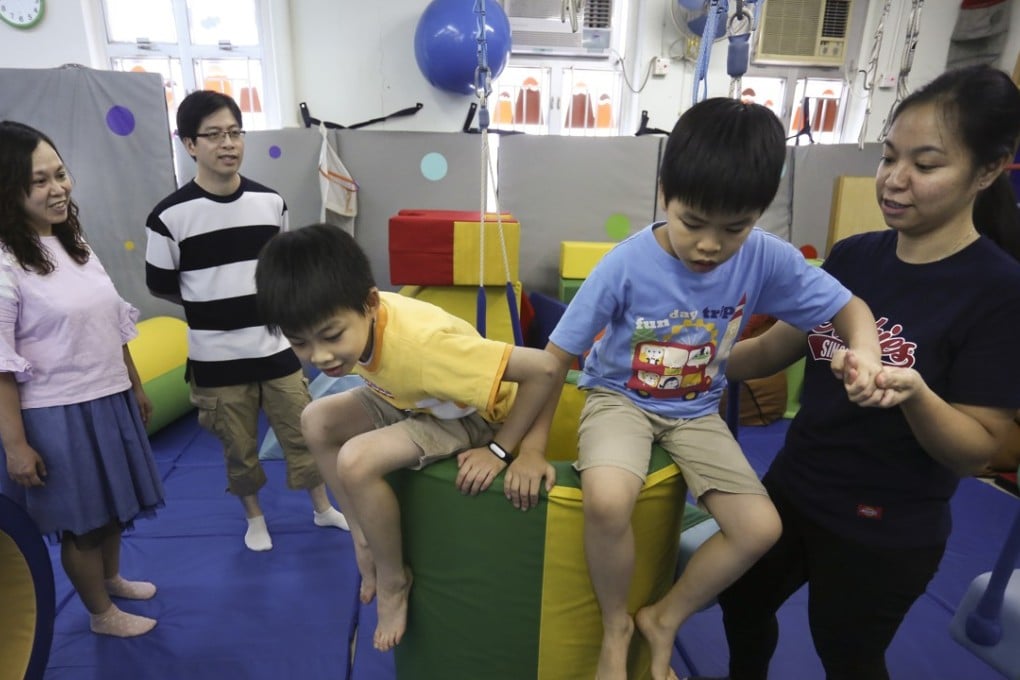Hong Kong students with special needs not properly supported by government education system
Due to long waiting lists for basic services, a lack of financial assistance and schools that seem unable or unwilling to help, parents of special needs children have to pay for expensive private assessments and specialist therapies

Angela Wong, (not her real name) noticed there was something not quite right with her son very early on. As a toddler, Ming was unusually energetic, slept very little and could never sit still. Even after two years in kindergarten, he could not remember the first few letters of the alphabet and would write numbers backwards. She pointed out her observations to his kindergarten teacher, who dismissed her concerns.
A gynaecologist well-versed in early childhood education, Wong suspected her son may be hyperactive. Her suspicion was confirmed when the preschooler was diagnosed at a private child assessment centre with attention deficit hyperactivity disorder (ADHD) and language delay.
Ming’s name was added to a long waiting list for government-funded speech and occupational therapy. However, by the time he was scheduled to begin the sessions, one year later, his time in kindergarten would almost be at an end, meaning he would no longer qualify for preschool rehabilitation services.
Charity offers low-income Hong Kong children mental health care as city waiting times hit 3 years

Aware that the most rapid development of a child’s brain occurs before the age of five, Wong decided to skip the waiting list. She took her son to see a private occupational therapist, who helped him enhance his vestibular system, to improve his sense of balance and spatial orientation. She also enrolled him in language classes with a focus on creative writing.
New Hong Kong clinic promises swifter help for pupils with special needs
Her efforts have borne fruit. Despite his learning difficulties, Ming kept up with the average standard of children in primary school. But the progress wasn’t cheap. The family had spent more than HK$8,000 (US$1,000) a month for more than four years on educational and medical expenses for Ming, and Wong quit her job to become a full-time mother.